Honda Jazz vs VW Passat – Which model is better for everyday use?
Two cars, one duel: Honda Jazz meets VW Passat.
Which one wins in performance, efficiency and value for money? Find out now!
Costs and Efficiency:
Looking at overall running costs, both models reveal some interesting differences in everyday economy.
Honda Jazz has a convincingly advantage in terms of price – it starts at 23100 £, while the VW Passat costs 35700 £. That’s a price difference of around 12634 £.
Fuel consumption also shows a difference: VW Passat manages with 0.30 L and is therefore significantly more efficient than the Honda Jazz with 4.50 L. The difference is about 4.20 L per 100 km.
Engine and Performance:
Under the bonnet, it becomes clear which model is tuned for sportiness and which one takes the lead when you hit the accelerator.
When it comes to engine power, the VW Passat has a decisively edge – offering 272 HP compared to 122 HP. That’s roughly 150 HP more horsepower.
In acceleration from 0 to 100 km/h, the VW Passat is convincingly quicker – completing the sprint in 5.80 s, while the Honda Jazz takes 9.40 s. That’s about 3.60 s faster.
In terms of top speed, the VW Passat performs clearly perceptible better – reaching 250 km/h, while the Honda Jazz tops out at 175 km/h. The difference is around 75 km/h.
There’s also a difference in torque: VW Passat pulls clearly perceptible stronger with 400 Nm compared to 253 Nm. That’s about 147 Nm difference.
Space and Everyday Use:
Cabin size, boot volume and payload all play a role in everyday practicality. Here, comfort and flexibility make the difference.
Both vehicles offer seating for 5 people.
In curb weight, Honda Jazz is evident lighter – 1302 kg compared to 1573 kg. The difference is around 271 kg.
In terms of boot space, the VW Passat offers convincingly more room – 690 L compared to 304 L. That’s a difference of about 386 L.
In maximum load capacity, the VW Passat performs evident better – up to 1920 L, which is about 715 L more than the Honda Jazz.
When it comes to payload, VW Passat distinct takes the win – 577 kg compared to 388 kg. That’s a difference of about 189 kg.
Who comes out on top?
Overall, the VW Passat shows itself to be dominates this comparison and secures the title of DriveDuel Champion.
It convinces with the more balanced overall package and proves to be the more versatile choice for everyday use.
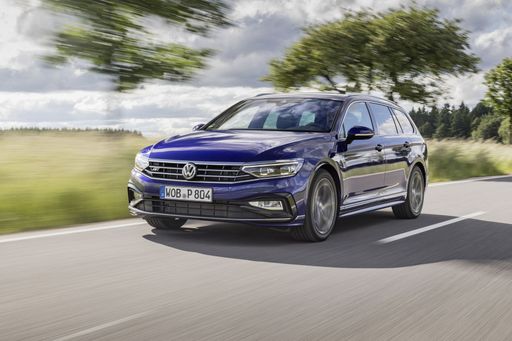
VW Passat
Honda Jazz
The Honda Jazz stands out in the compact car category with its intelligently designed interior, offering a surprisingly spacious cabin that comfortably accommodates passengers and luggage. Its efficient hybrid powertrain ensures a smooth and economical driving experience, ideal for both urban commutes and longer journeys. Furthermore, the Jazz is equipped with a range of advanced safety features, providing peace of mind while on the road.
details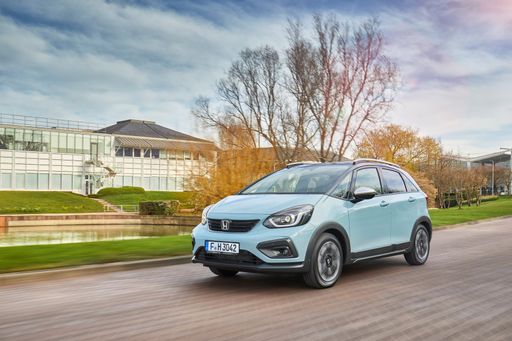 @ hondanews.eu
@ hondanews.eu
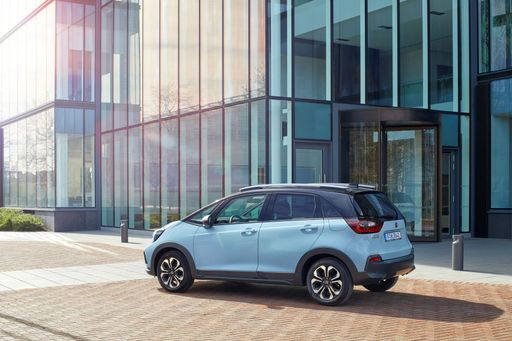 @ hondanews.eu
@ hondanews.eu
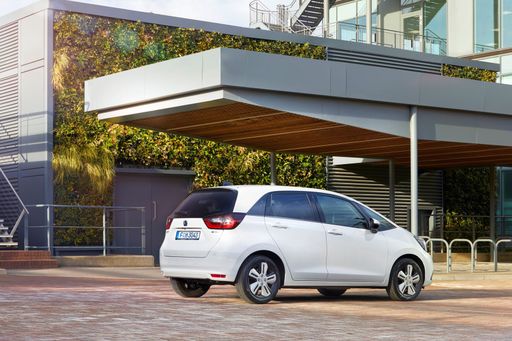 @ hondanews.eu
@ hondanews.eu
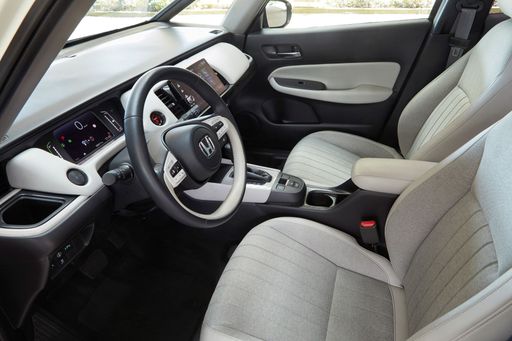 @ hondanews.eu
@ hondanews.eu
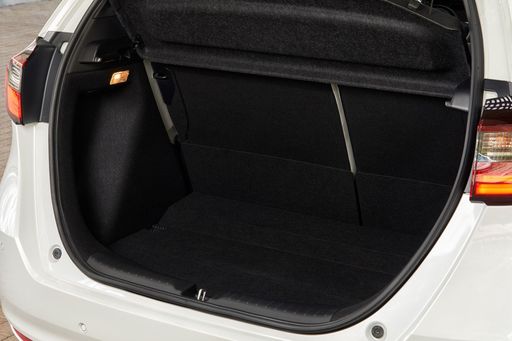 @ hondanews.eu
@ hondanews.eu
VW Passat
The VW Passat is a staple in the family saloon segment, known for its refined design and practicality. It effortlessly combines a comfortable ride with a spacious interior, making it a popular choice for long journeys. The cabin features high-quality materials and an intuitive infotainment system, providing a premium feel without sacrificing user-friendliness.
details @ volkswagen-newsroom.com
@ volkswagen-newsroom.com
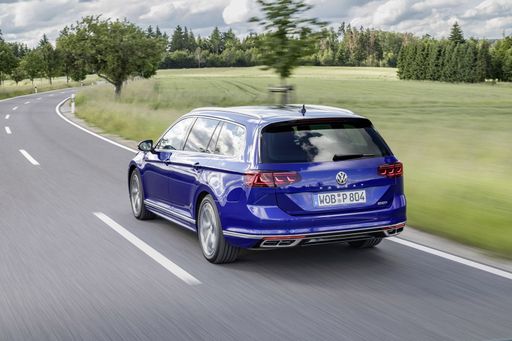 @ volkswagen-newsroom.com
@ volkswagen-newsroom.com
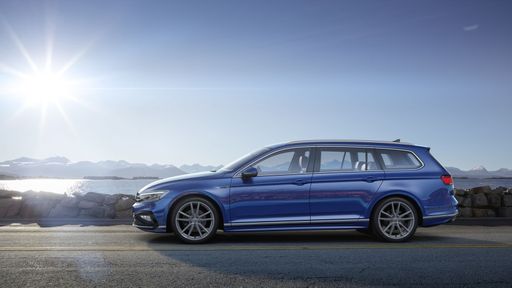 @ volkswagen-newsroom.com
@ volkswagen-newsroom.com
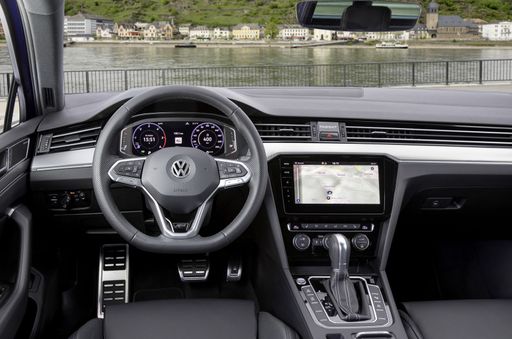 @ volkswagen-newsroom.com
@ volkswagen-newsroom.com

|

|
|
|
|
Costs and Consumption |
|
|---|---|
|
Price
23100 - 26700 £
|
Price
35700 - 58500 £
|
|
Consumption L/100km
4.5 - 4.8 L
|
Consumption L/100km
0.3 - 8 L
|
|
Consumption kWh/100km
-
|
Consumption kWh/100km
-
|
|
Electric Range
-
|
Electric Range
124 - 133 km
|
|
Battery Capacity
-
|
Battery Capacity
19.70 kWh
|
|
co2
102 - 108 g/km
|
co2
7 - 181 g/km
|
|
Fuel tank capacity
40 L
|
Fuel tank capacity
45 - 66 L
|
Dimensions and Body |
|
|---|---|
|
Body Type
Hatchback
|
Body Type
Estate
|
|
Seats
5
|
Seats
5
|
|
Doors
5
|
Doors
5
|
|
Curb weight
1302 - 1320 kg
|
Curb weight
1573 - 1858 kg
|
|
Trunk capacity
304 L
|
Trunk capacity
510 - 690 L
|
|
Length
4089 - 4105 mm
|
Length
4917 mm
|
|
Width
-
|
Width
1849 mm
|
|
Height
1526 - 1556 mm
|
Height
1521 mm
|
|
Max trunk capacity
1205 L
|
Max trunk capacity
1770 - 1920 L
|
|
Payload
370 - 388 kg
|
Payload
501 - 577 kg
|
Engine and Performance |
|
|---|---|
|
Engine Type
Full Hybrid
|
Engine Type
Plugin Hybrid, Petrol, Petrol MHEV, Diesel
|
|
Transmission
Automatic
|
Transmission
Automatic
|
|
Transmission Detail
CVT
|
Transmission Detail
Dual-Clutch Automatic
|
|
Drive Type
Front-Wheel Drive
|
Drive Type
Front-Wheel Drive, All-Wheel Drive
|
|
Power HP
122 HP
|
Power HP
122 - 272 HP
|
|
Acceleration 0-100km/h
9.4 - 9.7 s
|
Acceleration 0-100km/h
5.8 - 10.7 s
|
|
Max Speed
175 km/h
|
Max Speed
212 - 250 km/h
|
|
Torque
253 Nm
|
Torque
250 - 400 Nm
|
|
Number of Cylinders
4
|
Number of Cylinders
4
|
|
Power kW
90 kW
|
Power kW
90 - 200 kW
|
|
Engine capacity
1498 cm3
|
Engine capacity
1498 - 1984 cm3
|
General |
|
|---|---|
|
Model Year
2023
|
Model Year
2024 - 2025
|
|
CO2 Efficiency Class
C
|
CO2 Efficiency Class
B, G, D, E
|
|
Brand
Honda
|
Brand
VW
|
Is the Honda Jazz offered with different drivetrains?
The Honda Jazz is offered with Front-Wheel Drive.
The prices and data displayed are estimates based on German list prices and may vary by country. This information is not legally binding.
